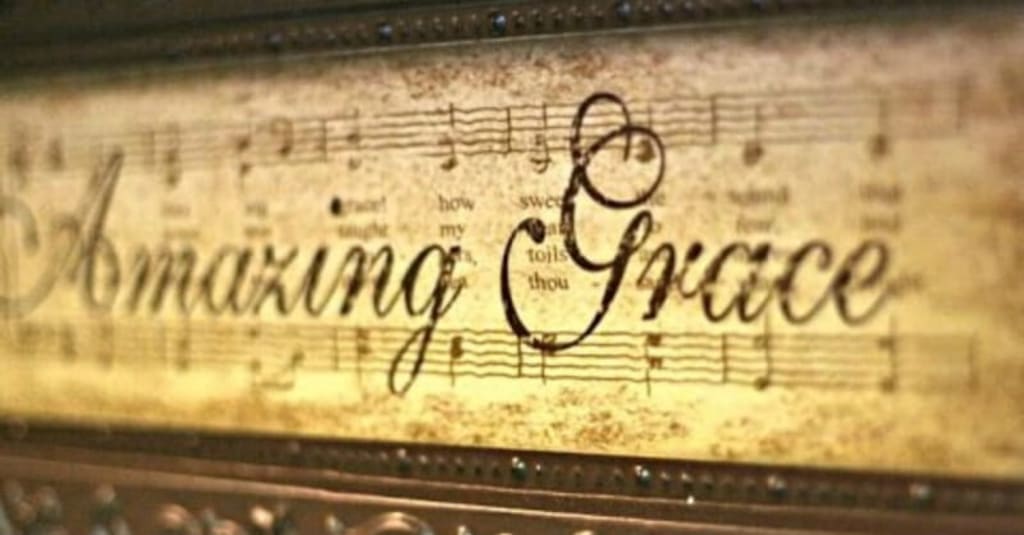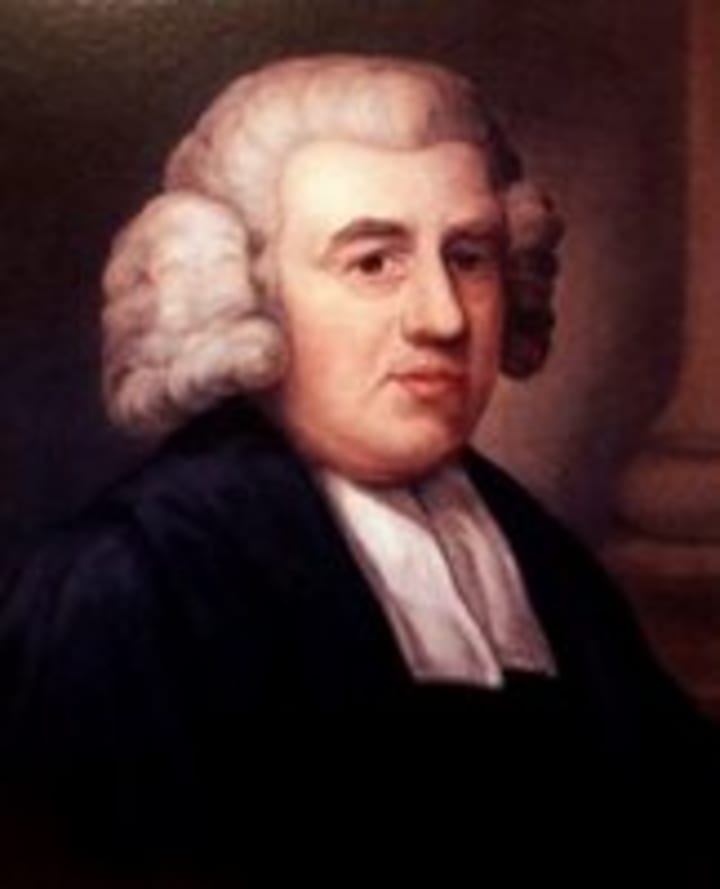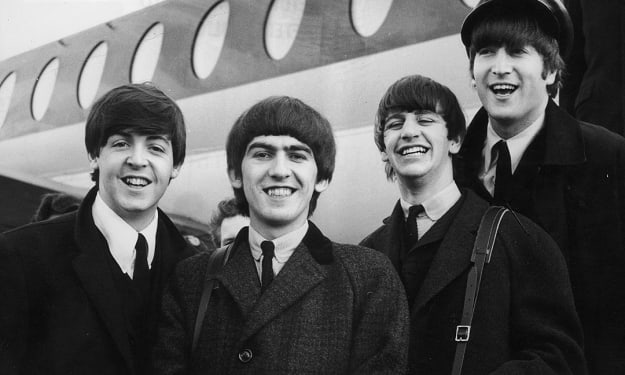History of Amazing Grace, part 1
The Story Behind the Song

On February 23, 1807, the British parliament passing a bill banning the nation’s slave trade. In these two articles, we’ll explore the lives of two men and one song that played a large role in that effort.
John Newton's devoted Christian mother dreamed that her only son would grow up to become a preacher. But he lost his mother when he was six years old, and at the age of eleven followed his sea-captain father to the sea. He did not take to the discipline of the Royal Navy and deserted ship, was flogged, and eventually discharged.

In looking for greater liberty, he ended up on the western coast of Africa in Sierra Leone, where he worked for a slave trader who mistreated him and made him a virtual slave of the trader’s black wife, who had descended from African royalty. At this time, he was described as
“a wretched-looking man toiling in a plantation of lemon trees in the Island of Plantains… clothes had become rags, no shelter and begging for unhealthy roots to allay his hunger.”
After more than a year of such treatment, he escaped the island by appealing to his father in 1747.
The next year at sea, his ship was battered by a severe storm off the coast of County Donegal, Ireland. Newton had been reading “The Imitation of Christ,” and in great fear, while he rowed and bailed for hours (for he could not swim!), he cried out to God to save him, a wretched sinner. Years later, he looked back and penned these autobiographical words.
Amazing grace, how sweet the sound
That saved a wretch like me
I once was lost, but now am found
Was blind but now I see.
John Newton, Epilogue
Ironically, following his conversion to Christianity, Newton spent the next six years as captain of slave ships. While he had religious services on board, he eventually came to abhor slavery and later to crusade against it. He influenced British Member of Parliament William Wilberforce to become active in working to abolish it. (We’ll discuss Wilberforce’s story in a subsequent article.)
Newton later studied for the ministry and attracted large audiences as an Anglican priest when he preached where he was known as “the old converted sea captain.” He collaborated with the poet William Cowper in producing the Olney Hymns, which became the standard hymnal of evangelical Anglican churches.
In his old age, when it was suggested to him that he retire due to his bad health and failing recollection, he said,
“My memory is nearly gone, but I remember two things:
That I am a great sinner and that Christ is a great Savior!”
Amazing Grace, the Song
His song, Amazing Grace, has become the American anthem and influenced many generations. It’s been sung by everyone from Elvis Presley to Aretha Franklin. Even President Obama sang it at a eulogy. It became popular again in America first when Arlo Guthrie sang it at Woodstock in 1969, but more prominently when Judy Collins, along with friends and family at St. Paul’s chapel at Columbia University, recorded it a capella in 1970. Her version has been named to the National Registry. I had the pleasure of seeing Judy Collins sing it in Denver a couple of years ago. It has remained my favorite hymn all my life and will usher me into the next. It always makes me misty-eyed.
You can learn more at www.amazinggracemovie.com.
Bill Petro, your friendly neighborhood historian
If you enjoyed this article, please consider leaving a comment. Subscribe to have future articles delivered to your email.
About the Creator
Bill Petro
Writer, historian, consultant, trainer
https://billpetro.com/bio






Comments
There are no comments for this story
Be the first to respond and start the conversation.